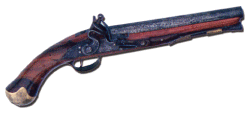Rathcoole 1798 |
 |
Rathcoole 1798 |
 |
John Clinch |
| Eighteen year old
John Clinch of Rathcoole House
was arrested in the last days of May 1798. John was brought up in Rathcoole
House. |
|
| The Freeman's
Journal, 2 June, wrote: "A young man named Clinch, the son of a respectable farmer who lived at Rathcoole, has been apprehended and yesterday was in the guard house in the Castle. He stands charged with being an officer in the rebel army. He is a young man and was a member of the Rathcoole yeomanry." He was courtmartialled and convicted on Friday, 1 June 1798. The following day he was executed. |
|
Father Harold |
| Father James Harold
was appointed to Rathcoole in
1794. On the Sunday
before the rebellion fifty five year old Father Harold exhorted his people in
Rathcoole to forbearance and he urged them to shun all disorder and discord.
Then he went on to rebuke the yeomanry and military for the reckless barbarity
they displayed. The military issued an order for his arrest. Local tradition
has it that he was arrested at Rathcoole House, as he was in hiding there.
|
|
| The Freeman's Journal
of 2 June 1798 stated that 'A Roman Catholic clergyman was on Thursday brought up to town from the neighbourhood of Rathcoole, a prisoner, who is accused of being an abettor to the rebels in that part of the country.' |
|
| Father Harold
appeared before Judge Robert Day on 13 February, 1799. He was sentenced to
transportation to Botany Bay. In August, 1799 Father Harold left Cobh on board
"The Minerva" for Australia. After almost five months at sea, Fr. Harold
reached Sydney on 11 January 1800. In 1810 he was granted his liberty and returned to Ireland in 1813. He died on 15 August, 1830. |
|
Richard Fyans and Molloy |
| In June, 1798 The
Freeman's Journal reported that a baker at Rathcoole and his journeyman entered
into a conspiracy with other persons to poison the military stationed there.
Local tradition has it that the redcoats were out all night looking for rebels. They were very hungry when, early one morning, they came to Rathcoole. They raided Fyans bakery and found a batch of freshly baked bread. Some of them took too much of the hot bread with buttermilk and became very ill. Fyans and Molloy were immediately hanged where the garda barracks now stands. They are buried in the Old Catholic section of the Church of Ireland Cemetery, Rathcoole. |
|
 |
Felix Rourke |
| Felix Rourke was the
son of a local farmer who also kept the tollgate at Blackchurch. He was an
active member of the United Irishmen, arrested in 1798 and released in 1799.
Five years after his time in Naas Jail he was involved in the 1803 rebellion. On 24 August, 1803 Felix Rourke was indicted for high treason and sent for trial. The verdict was guilty. He was taken by cart from Dublin out by Dolphin's Barn and up the coach road through Jobstown and on through Saggart. On 10 September 1803 he met his death at the burned out house of Father Harold. The Freemans Journal of 13 September, 1803 reported: 'The town of Rathcoole at the time of execution of Felix Rourke on Saturday last seemed to be deserted of all its inhabitants, not one in coloured clothes was to be seen'. |
 |
 1798 Monument |
|||
Length Equivalents |
Search the Web |
Area Equivalents |
|
 |
 |
 |
|
| Main source: "A History of Saggart and Rathcoole Parishes" by Maeve Mulryan Moloney |
|
 |